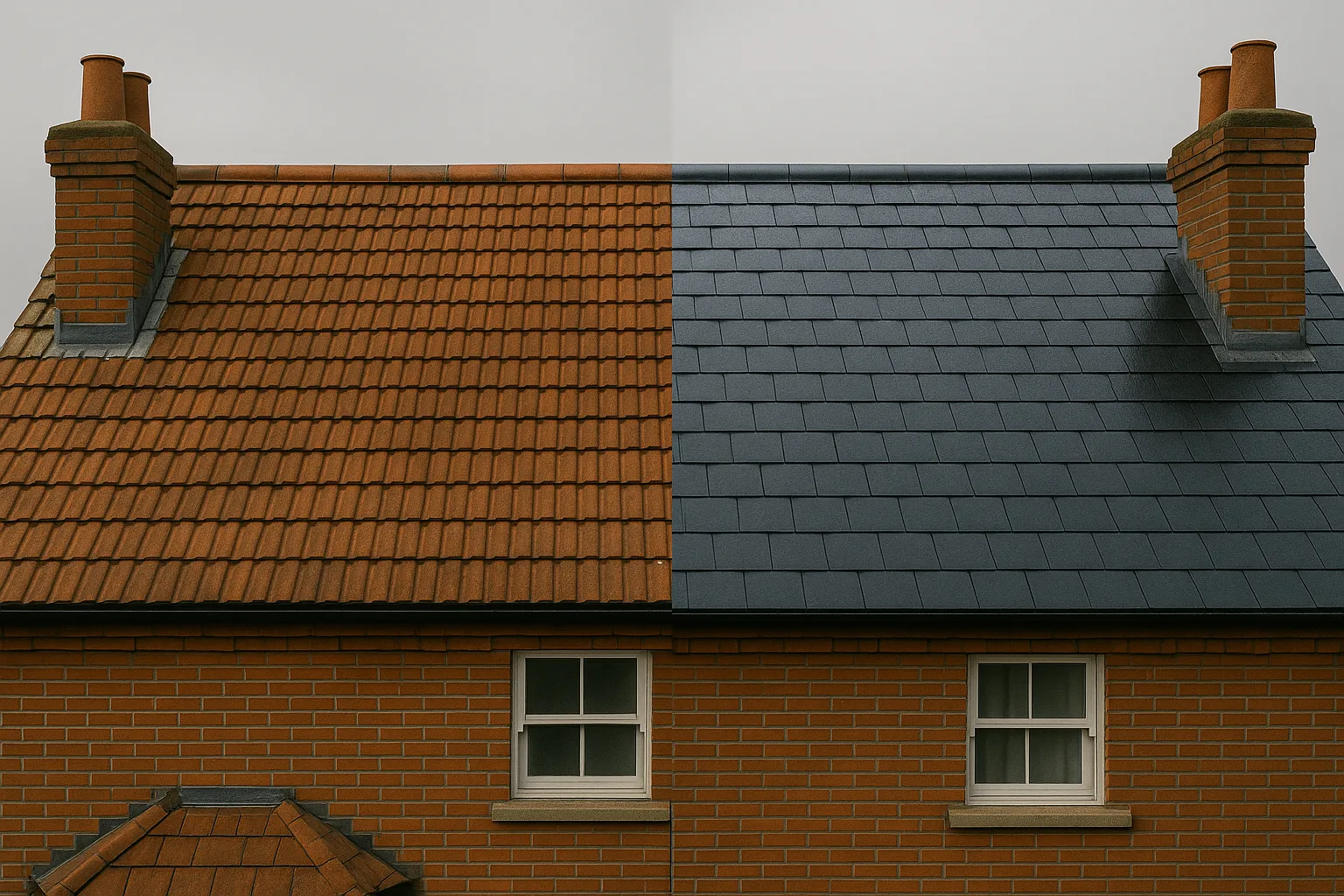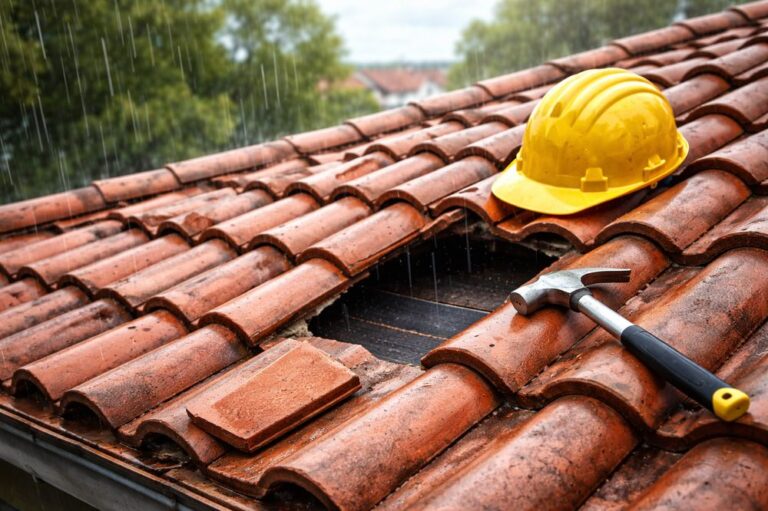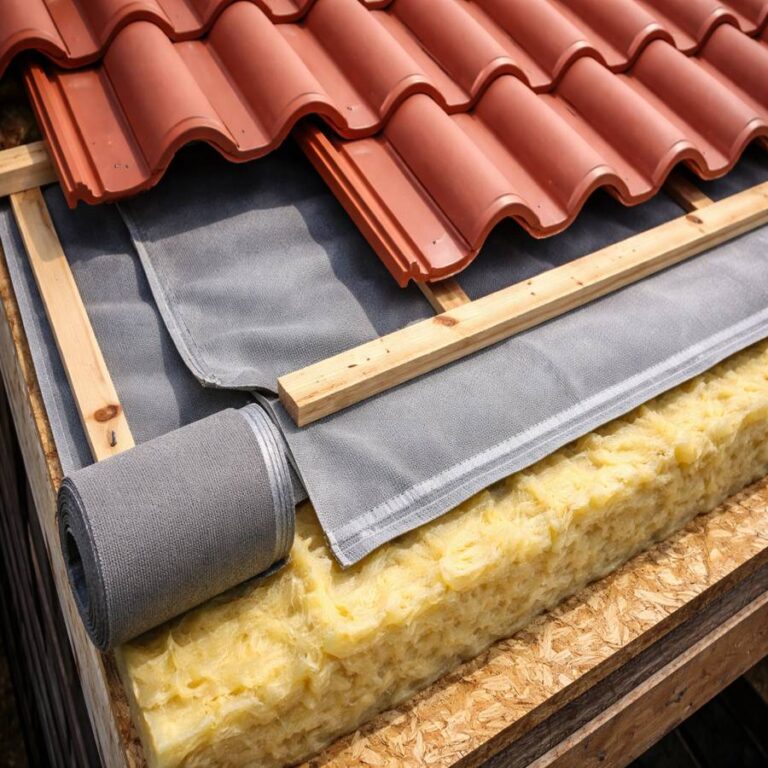Let’s be honest: getting a new roof is a big deal. Most of us only do it once, maybe twice, in a lifetime. It’s not just about stopping leaks; you want peace of mind that your home is protected for years, without the nagging worry the roof might let you down or cost you all over again. That’s where the guarantee comes in. But here’s the tricky part: roofing guarantees can feel like a minefield of jargon, small print, and promises that sound too good to be true.
So, how long should a new roof be guaranteed for in the UK? What should you watch out for? And how can you make sure your guarantee is the real deal, not just a piece of paper gathering dust in a drawer? Let’s break it down in simple, practical terms, with real-life situations and clear, plain English.
The Short Answer: What’s “Normal” for Roof Guarantees in the UK?
If you need to remember just one thing, it’s this: a properly installed pitched roof with tiles or slates should come with a minimum 10-year guarantee on workmanship, and often 20, 30, or even 40+ years’ peace of mind on the materials themselves. Flat roofs have a bit more variety, but more on that soon.
Here’s a quick, no-nonsense snapshot:
- Workmanship guarantee (from the roofer): Usually at least 10 years on a standard tile or slate roof. Top-end firms may offer 15 or even 20.
- Manufacturer or product warranty (from the company who makes the tiles, slates, or membrane): Often 20–40 years (sometimes more for premium slates).
- Flat roof systems: Torch-on felt for flat roofs might offer 10 years, but quality single-ply or liquid-applied systems can hit 20 or even 25+.
The important thing? You’ll almost always have two separate types of cover: one for how the roof was fitted, and one for the products used.
Roofing Jargon Busted: Guarantee, Warranty & Other Buzzwords
Let’s clear up the basics. There’s a lot of overlap, some serious, some marketing fluff.
- Workmanship guarantee: This one’s from your roofer. If your new roof leaks because of how it was put on (not just bad weather or flying footballs), the company should fix it for free, for the length of the guarantee.
- Manufacturer warranty: The tile, slate, or flat roof brand promises their product won’t fall apart or degrade before its due date. If a slate shatters or a membrane cracks too soon, you should be covered.
- Insurance-backed guarantee (IBG): If your roofer shuts up shop (it happens), but your roof starts leaking, the insurance kicks in and pays another registered contractor to put it right. This is essential peace of mind, especially for big jobs.
- CompetentRoofer Scheme: Some contractors belong to this official scheme. It means they can “self-certify” their work meets regulations and you’ll often get a 10-year IBG automatically.
- NFRC: This is the main trade association for roofers in the UK, and it sets high standards for membership.
How Guarantee Lengths Stack Up, By Roof Type and Material
Every home, and every roof, is a bit different. Here’s what you can genuinely expect:
- Concrete tiles: The bread-and-butter choice for many homes. Manufacturers like Marley or Redland will usually cover their tiles for around 30 years, sometimes more. Your roofer should back up their fitting with at least a 10- to 15-year guarantee.
- Clay tiles: These last even longer and often carry 30-year (or longer) warranties from the brand. Make sure you get 10-15 years’ cover on the fitting.
- Natural slate: Go for the best and you’ll see warranties of 50 or even 100 years from premium makers, especially Welsh or Spanish slate. Your roofer’s guarantee might be between 10 and 20 years for the installation.
- Fibre-cement slate: Budget-friendlier than natural slate, but still solid. Usually 30 years on the product, 10 on the fitting.
- Standing seam metal (zinc, copper, or aluminium): Classy stuff, with material warranties in the 25–40 year range, and 10 or more on the installation if you use a specialist.
- Single-ply membranes (for flat roofs): Big names like Sika or Bauder will give you up to 25 years if it’s fitted by their approved contractors.
- GRP (fibreglass for flat roofs): Typically 10–25 years, depending on who does the job and which system they use.
- Torch-on felt: Modern felt is much better than old school stuff, and a proper job should see you safely covered for up to 20 years.
Don’t Fall Foul: What Can Invalidate a Roof Guarantee?
It can be all too easy to void a guarantee, sometimes without even realising it. Here are the common traps, with examples:
- Poor ventilation: No vents mean damp can build up in your loft, potentially rotting timbers. If the roofer skipped this, your manufacturer could wriggle out of covering any issues.
- Wrong fixings: The right nails and fixings, especially for wild weather, really do matter. Shortcuts here may give the manufacturer a reason to refuse any claim.
- Lack of maintenance: No-one expects you up a ladder each month, but clearing gutters and keeping an eye out for moss or debris is standard. Neglect, or letting trees overhang and batter the tiles, could be seen as “lack of care”.
- DIY add-ons: Fitting solar panels, satellite dishes, or Velux windows without asking your original roofer first? If it’s not done correctly, this could void your existing guarantee, especially if it causes leaks.
- Aggressive cleaning: Jet-washing the roof seems like a quick win, but it can do more harm than good, blasting away protective coatings and pushing water into places it should never go. Instant reason for a voided guarantee.
What Should You Check in Your Guarantee Paperwork?
Don’t let your guarantee paperwork gather dust in a kitchen drawer or the “house admin” shoebox under the stairs. Read it properly, you’ll thank yourself later if anything crops up. Here’s a quick checklist to make it clear:
- Who’s making the promise? Roofer, manufacturer, or an insurance company? Ideally, more than one!
- Length and key dates: Confirm when cover starts and finishes.
- Transferable or not? Planning to sell up one day? A transferable guarantee can sway a sale, buyers love this.
- Exclusions: Storm or pest damage is usually down to your house insurance, not the roofer. Ditto accidents.
- Maintenance requirements: Does the small print say you must get an annual inspection, or clean the gutters each autumn?
- Claiming: Make sure you know who to contact if you need to claim and what evidence you’ll need.
If anything looks odd, or you’re not sure what a term means, don’t be shy, just ask your roofer or surveyor to explain.
Can You Haggle for a Better Guarantee?
Sometimes, yes and it’s always worth asking.
If you get a quote that only has a 1- or 2-year guarantee on a whole new roof, that’s a warning sign. A decent company will stand by their work for much longer. You might want to say something like:
“I see you’ve included a 5-year guarantee, but another firm is offering 10 years, insurance-backed, for a similar price. Is there any chance you could match this?”
A reputable roofer will either up their game or explain honestly why their guarantee is different and what that actually means for you.
FAQs: Quick Answers to Guarantee Questions
- Are “lifetime” guarantees real, or is it just a marketing tactic?
Be cautious! “Lifetime” often means the product’s lifetime (sometimes up to 100 years for slate) or as long as you own the house. Always check the fine print. 25 years defined in writing is always more reassuring. - Can you pay for longer cover?
Sometimes, especially with high-end flat roof systems. If longevity is essential, ask if there are extended options. - What if the roofer disappears?
Without an insurance-backed guarantee, you’re a bit stuck. With one, if your installer goes bust, the insurance company pays for another firm to sort things. - Does a listed building affect guarantees?
Yes, as specialists are needed for heritage roofs, and guarantee terms can be more tailored. Get proper advice and paperwork from an expert in period or listed properties.
The Bottom Line
Having your roof replaced is one of those jobs you want to do once, do properly, and not worry about for a good long while. Guarantees matter not just for peace of mind, but to protect your investment (and they impress future buyers).
Here’s what to remember:
- Aim for at least 10 years of workmanship cover for a pitched roof, and 20–40 years on the materials.
- Make sure you’ve got the paperwork, read it, and file it somewhere safe (maybe take a digital copy too).
- Keep the roof looked after, and ask before adding bits and bobs.
- If you’re unsure or something sounds too good to be true, get a second opinion or ask a trade body like NFRC.
Getting the guarantee right means you can relax every time the rain starts hammering down, knowing that, if an issue crops up, you’re covered.
Point Roofing offer a minimum of 10 year workmanship on all new roof installations. If you would like a quote for a new roof contact us.






